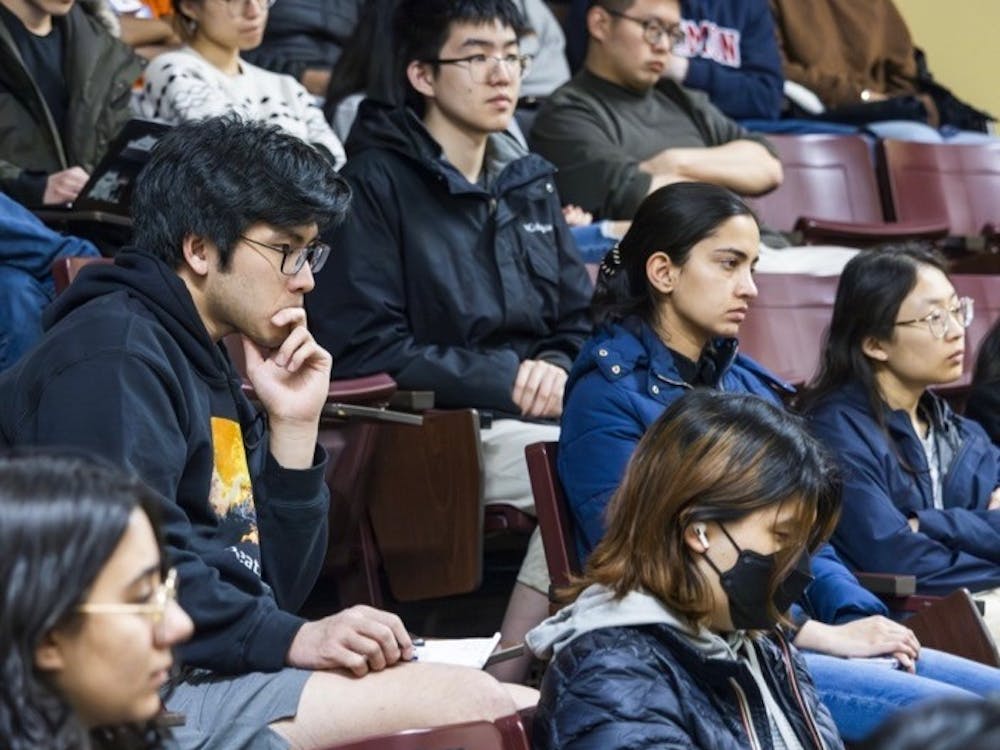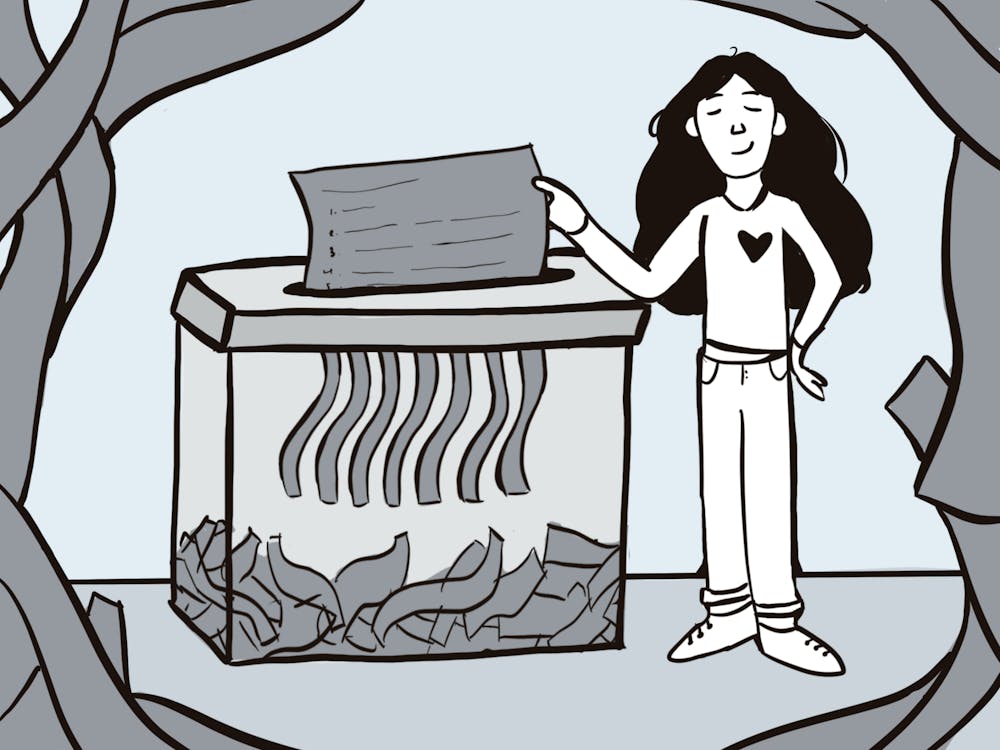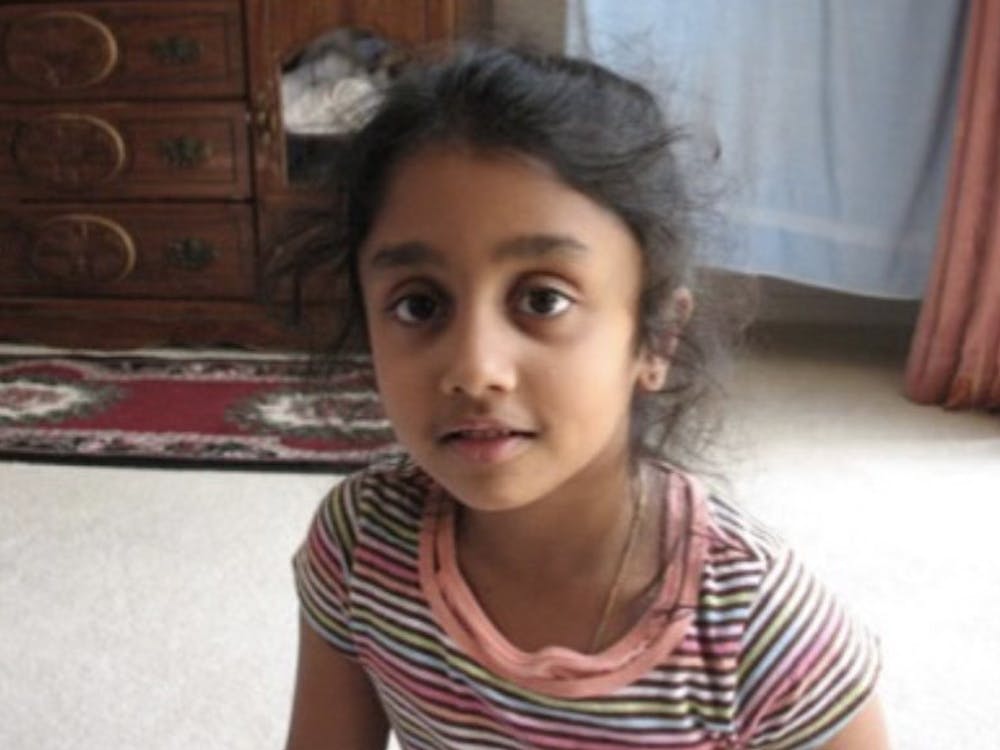I don’t remember the first time I was catcalled, the first time I felt uncomfortable because of the way a man looked at me on the street or even the first time I was groped, but I remember the first time it had to do with my race.
I was 14 and awkward, finally free of braces and glasses but still graceless and gawky in my body. That summer, I was at a girls’ arts camp on Bryn Mawr’s campus. When the camp announced they were taking us on a day trip to Philadelphia, I was thrilled. I lived in the suburbs of central Jersey, but my family preferred New York City, and I had only been to Philly a few times.
The day of the trip, I dressed up in my favorite outfit and headed out. It was the kind of summer day that’s just right — warm enough to be comfortable outside but not too humid. The food was delicious, my friends were hilarious and the shopping without a chaperone felt delightfully adult; it was a perfect day until suddenly, it wasn’t.
Until I was walking with my friends, and a man shouted, “Konichiwa, beautiful geisha!” Until I felt his eyes crawling over me, roving over my skin like it belonged to him. Until I noticed him clasping his hands together and bowing toward me. Then it wasn’t so perfect anymore.
I’m 14 years old. I’m standing on the sidewalk in a city known for its love with people that I love, and I feel disgusted. I am ashamed of myself, horrified that I’m only wearing shorts and a t-shirt — Did I wish this upon myself? Is this my fault? — guilty that I haven’t said anything to tell him off and afraid to do anything but run away. Instead, I blurt out, “I’m not Japanese,” and then grab my friends and sprint down the street.
We meet the other campers, get tacos for dinner and chat about the day with each other. I sit in the corner quietly, simmering with rage and unsaid retorts. I can’t get the words out of my head — “Konichiwa, beautiful geisha.” I’m not Japanese. But that’s not the problem here. I just can’t wrap my head around what is.
This is the first time it happens, but not the last. The years of my adolescence are sprinkled with memories like this. When I am 15, a boy trying to get in my pants tells me that I am cute for an Asian. He thinks it’s a compliment. It’s not. The same year, I pick up Yellow by Frank H. Wu (Hopkins Class of ‘88) and write a paper on Asian American history, and I finally understand why “Konichiwa, beautiful geisha” is a problem for more than just its creepiness, that catcalling someone with those words is lumping Asians together and treating Asian women as objects.
When I am 17, I start college, and I realize just how many people think that it’s okay to ask, “No, but where are you really from?” and how many boys think “I’ve got yellow fever” is a good pick-up line. Later my freshman year, a boy tells me he normally doesn’t like Asians, but he likes me. He, too, thinks this is a compliment. It’s not.
That summer, I intern for the first openly LGBTQ person of color in either house of Congress and learn from constituent correspondence that bigots never leave you alone, even when you’re a congressman.
When I am 20, I leave America to study abroad in London. Most of my neighbors are well-off, older couples, and as a result, several days pass before the first time something happens.
Until the first night we go out, and the men who hit on me refuse to believe that I am from the States, like my white friends. Until we visit Barcelona, and the shopkeeper greets me with “Annyeonghaseyo,” then demands to know where I’m from (“The States”) and where my parents are from (“The States”) and if I’m Korean, because there are apparently a lot of Koreans in the States. (“I wouldn’t know. I’m not Korean.”)
Until we go to a club, and two men bow at me, hands clasped in front of them, and it feels like I’m 14 again, standing in the Philadelphia sun and terrified, and if Drake weren’t blasting on the speakers, I’d think I’d heard them say, “Konichiwa, beautiful geisha.” But this time I’m 20 and no longer afraid, and instead of running away, I turn to them and kindly inform them, “That’s a bit racist, you know.” They gesture at their ears; they can’t hear me. “I SAID, THAT’S A BIT RACIST,” I shout.
I tilt my head to the side and smile sweetly, the way I know they think all Asian women smile, then grab my roommate’s hand and leave.
This is how it is. This is how it feels. These are the moments, the memories that stick in my head. The times that tell me that I will always be an “other” to certain people, that I will always be an object to some men, that yellow skin and dark hair will always mean catcalls and pickup lines about my race. This is how it is.






















Please note All comments are eligible for publication in The News-Letter.